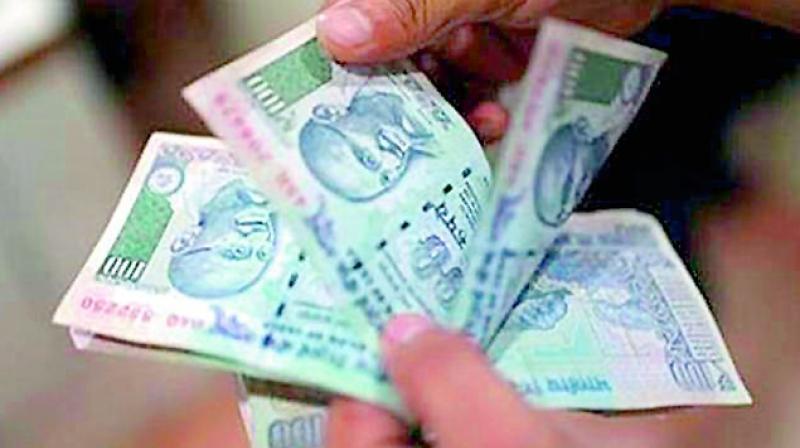Centre may merge all welfare plans for dole

New Delhi: The roll-out of a pure Universal Basic Income (UBI) scheme in the interim Budget next week would be prohibitively expensive costing Rs 22 lakh crore or 11 per cent of the GDP, said a report by brokerage firm Anand Rathi.
However, its impact could be softened and yet target poorest segments by bringing it into the DBT (direct benefit transfer) scheme with the use of JAM (Jandhan, Aadhaar and mobile), said the report. “This and consolidation of existing subsidies and welfare schemes would reduce the fiscal impact to '4-4.5 trillion,” said the report.
It said that putting Quasi-Universal Basic Income (QUBI) on DBT would resolve the issues and can be launched immediately without large upfront spending.
In its most extensive form, UBI entails unconditional (no quid pro quo), universal (no targeting), periodic (not one-time), cash (not in kind or coupons) payments to individuals (not per family).
“If the aim of UBI is to provide enough income to all Indians to cross the poverty line, the costwould be around Rs 22 lakh crore (133 crore population, Rs 1,400 per month to each individual). This is equivalent to 11 per cent of India’s GDP and 100 per cent of the gross tax receipt of the Central government. Obviously, such huge spending is well beyond the scope of government finances in India,” it said.
It said that if the scheme was modified to target the poorest (the bottom 40 per cent of the population) and simultaneously discontinue existing major subsidies (food, fertiliser and petroleum), the net outgo on the quasi-universal basic income scheme would shrink to Rs 6 lakh crore or 3 per cent of the GDP.
“Besides,if many of the extant welfare schemes such as MGNREGA, disability/old-age pension, scholarship schemes, etc. are be subsumed into QUBI, the net outgo would be around Rs 4.5 lakh crore, 2.25 per cent of India’s GDP,” it said.
The report said that rural distress has marked economic-social-political implications. It said that in view of the recent electoral backlash, the NDA government is likely to roll out a Quasi-Universal Basic Income scheme in the interim budget to address the issue of farm distress. “The alternatives like Rythu Bandhu (Telangana), KALIA (Odisha), farmers’ loan waiver or aggressive MSP hikes - do not fit the bill due to either implementation issues or lack of focus on the poorest,” it said.

